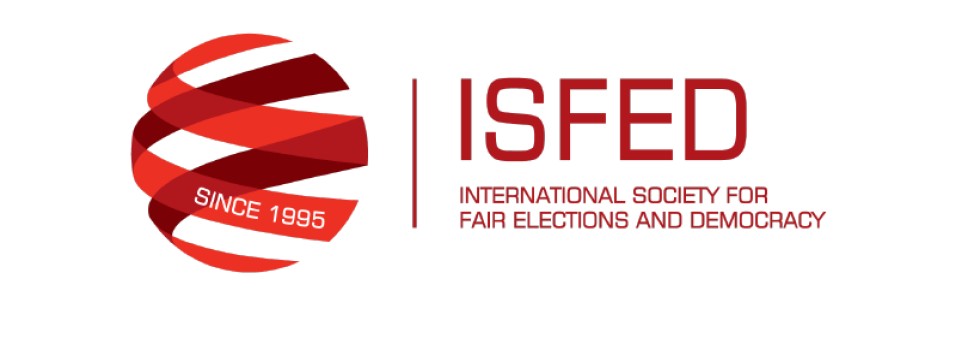CALL FOR APPLICATIONS: TRAINER ON ADVOCACY AND FOLLOW-UP FOR CSOs IN THE FIELD OF ELECTION OBSERVATION
The International Society for Fair Elections and Democracy (ISFED) is seeking a trainer to co-develop and conduct a training on follow-up and advocacy strategies for CSOs engaged in domestic election observation to be held 3rd to 7th of July this year in Georgia.
Background
ISFED (www.isfed.ge) is an independent non-profit organization with one of the broadest regional citizen election observation networks in Georgia. Since its foundation in 1995, it has made an important contribution to the improvement of the Election Code as well as the electoral and political environment in the country.
ISFED is a member of various networks of independent citizen election observers, including the European Platform for Democratic Elections (EPDE) and Global Network of Domestic Election Monitors (GNDEM). As part of these networks, ISFED seeks to promote peer-to-peer learning and exchange between citizen election observers and to contribute to democratic election processes throughout Europe.
Scope of work
ISFED aims to recruit an international expert to deliver a training in a team of trainers on follow-up and advocacy strategies for CSOs engaged in domestic election observation in the EU’s Eastern Neighborhood and some select EU Member States.
The training should look at the whole process of how domestic observers formulate recommendations for reforms based on their observation assessments and how these can be most effectively used in work following elections when advocating for reforms (follow-up). Goal of the training is to enhance the way in which domestic election observation organizations formulate their recommendations for reforms and how they best carry these recommendations to relevant decisionmakers. An important task of the training team will be to facilitate exchange between the participants. The training should provide methods for participants to transmit the learnt knowledge from this training to others within their organization (ToT).
Topics to be addressed in the training include, among others, the following:
- Basic concepts including international obligations that can be used for follow-up advocacy and different approaches by international and citizen observers;
- Actors involved in follow-up activities and differences in what can be done based on country-specific contexts;
- Formulation and structure of recommendations;
- Linking recommendations to other follow-up activities – focus on prioritization, targeting, mechanisms;
- Strategies for partnership or coalition building also outside of election observation community.
Target group of training:
- Advocacy / PR specialists of CSOs; core team of domestic observation missions; experts working on drafting of recommendations in participating CSOs
The training will be 3,5-4 full working days. Training sessions may be simultaneously interpreted depending on participants’ language skills. The trainer must be available prior to the training for consultations and joint conceptualization of the training together with other trainers. The organizers will cover the travel and accommodation costs. Full board is offered on the training days, no per diems or additional travel expenses can be covered.
Applications
Ideal applicants will have a track record of designing and conducting trainings incl. ToT methods, relevant experience in the field of use of technologies in elections, understanding of political processes in the EU’s Eastern Neighborhood, be fluent in English and/or Russian language. A good understanding of domestic election monitoring and the relevant actors will be an asset.
Interested applicants should submit the following documentation via email to summercamp2023.georgia@proton.me in ONE combined PDF using the subject line “Follow-up trainer” by 14th of June 09:00 CEST. Earlier applications will be considered and interviews conducted on a rolling basis, so please send in your applications before the deadline.
- CV of the expert(s);
- Brief outline of the proposed training module and methodology;
- Expected net honorarium;
- Overview of previous experience of conducting similar trainings;
- Language skills
Selection will be based on the best thematic offer, methodology, and the cost-performance ratio.
ISFED is an equal opportunity employer regardless of applicant’s race, color, religion, sex, sexual orientation, gender identity, national origin or disability status.

